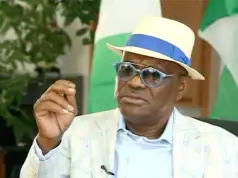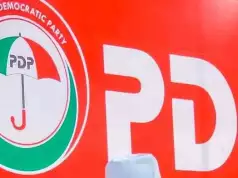People’s Democratic Party (PDP) presidential candidate Atiku Abubakar has asked the Presidential Election Petition Court (PEPC) to declare him the winner of the Federal 25 election.
Alternatively, he prayed to the court to order a rerun between him and the president-elect, Bola Tinubu.
In the alternative, he wants the entire election nullified and a fresh one conducted.
The petition by Atiku and PDP, a copy of which our reporter obtained yesterday, was filed late Tuesday by their team of lawyers, led by Chief Joe-Kyari Gadzama (SAN), and is numbered CA/PEPC/05/2023.
The Independent National Electoral Commission (INEC), Tinubu, and the All Progressives Congress (APC) are the first, second, and third respondents.
Tinubu scored 8,794,726 votes to defeat Atiku, who polled 6,984,520, and Labour Party (LP) candidate Peter Obi, who garnered 6,101,533 votes.
Atiku and the PDP are challenging the result on four grounds:
•The election of the second respondent is invalid by reason of noncompliance with the provisions of the Electoral Act, 2022.
•The election of the second respondent is invalid by reason of corrupt practices.
•The second respondent was not duly elected by a majority of lawful votes cast at the election.
•The second respondent was, at the time of the election, not qualified to contest the election.
The petitioners stated that they “shall lead oral and documentary evidence at the hearing in proof of the fact that the result of the election, as announced by the first respondent (INEC) and especially the votes wrongly allocated to the second respondent (Tinubu) do not represent the lawful valid votes cast; and that lawful votes were deliberately and massively deducted from the first petitioner’s (Atiku’s) scores by INEC to facilitate the return of Tinubu.”
They further stated that INEC failed to comply with its guidelines and regulations to transmit results and accreditation data directly and in real-time to the INEC Result Viewing Portal (IREV) and its electronic collation system/storage device before the hasty return and announcement of Tinubu as the winner on March 1, 2023.
They said: “The petitioners contend that by the combined provisions of the Electoral Act, the INEC Regulations and Guidelines, and the INEC Manual, the votes collated at the polling units are to be electronically transmitted with the Bimodal Voter Accreditation System (BVAS) directly and real-time to the INEC electronic collation system and IReV portal.
“The petitioners aver strongly that the first respondent, having set the parameters, did not ensure compliance with the electronic transmission of accreditation data and results in this election to create opportunity for manipulation of figures to the advantage of the second and third (APC) respondents.”
On their argument that Tinubu did not score the required votes on the FCT, the petitioners are contending that Tinubu, who contested on the APC platform, did not secure at least one-quarter of the votes cast in the presidential election in the Federal Capital Territory, Abuja.
“Out of the total votes of 478,652 cast in Abuja, the second respondent was ascribed only 90,902 (18.99 percent) of those votes.
“The petitioners shall contend that to be declared duly elected, a candidate, in addition to obtaining not less than a quarter (25 percent) of the votes cast in at least two-thirds of all the states, must also receive at least one quarter (25 percent) of the votes cast in Abuja, this being an additional requirement introduced by the Constitution of the Federal Republic of Nigeria 1999 (as amended), the said Constitution having clearly distinguished the Federal Capital Territory, Abuja as a separate entity by specific and express mention.”
Obi scored 281,717 votes in Abuja, representing 59 percent; Tinubu scored 90, 902, representing 19 percent, while Atiku came third in the FCT with 74,119 votes, representing 15 percent.
On their claim that the process was marred by corrupt practices, the petitioners are contending that the collation of election results in all the states was manipulated by INEC through the deliberate suppression and discounting of the lawful votes of the petitioners while allegedly inflating the scores by Tinubu and APC.
“The particulars of corrupt practices before and during the disputed election include but are not limited to the following, viz, compromised printing/production of electoral materials, manipulation of election material delivery, and compromised printing/production of election materials,” the petitioners said.











